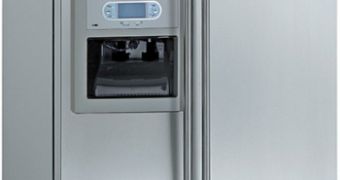The British government will distribute approximately 3,000 smart fridges in 2009, in an attempt to test how grid-sensitive appliances will work when connected to the power grid. These refrigerators will have the capacity to recognize peak periods in electricity usage and avoid drawing power at that time, so as to minimize the strain placed on fossil fuel-powered plants.
Early estimates say that, if the entire country were to move to smart house appliances, some 2 million tonnes of carbon would be kept from polluting the atmosphere and adding to the greenhouse effect every year. At the same time, the national economy would be able to hold on to some £222 million, which are now being spent on operating expensive and obsolete installations.
The testing of the new refrigerators is also meant to find out whether intermittent electrical energy, produced entirely from renewable sources such as wind farms and solar-powered facilities, can sustain the new class of house appliances, or if continuous high-intensity current is still needed. At the end of the tests, the grid must remain stable, and no surges must be registered.
Chips inside the new devices will keep track of how much energy they actually need in order to function properly and will be aimed at obtaining that amount without drawing power from the grid at any given time. Peak periods will also be registered, so the "brain" of the refrigerator will have a way of predicting when to start fueling itself, while always remaining within normal-functioning parameters.
Thus far, authorities have yet to announce when the new appliances will be distributed, or who will be eligible to receive them. Citizens will most likely have to take matters into their own hands, if they are interested in such a device, and start pressing their local officials for information. If the tests succeed, then the UK could soon see smart air conditioners, dishwashers and even electric car chargers.

 14 DAY TRIAL //
14 DAY TRIAL //